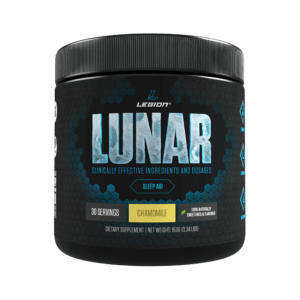Lemon balm is a humble herb with a rather illustrious history.
It has been used medicinally for over 2,000 years now, beginning all the way back in Ancient Greece.
Homer made reference to it in The Odyssey, Charlemagne treasured it, and now, thanks to the advances of Western science, its popularity on the rise yet again.
What is it, though, how can it benefit us, and how does it work?
Well, that’s what we’re going to talk about in this article, along with clinically effective doses, side effects, recommended supplements, and more.
By the end, you’re going to know whether lemon balm is right for you, and how to get the most out of it.
- What Is Lemon Balm?
- Why Do People Supplement With Lemon Balm?
- What Are the Benefits of Lemon Balm?
- What Is the Clinically Effective Dose of Lemon Balm?
- What Should I Expect From Taking Lemon Balm?
- Does Lemon Balm Have Any Side Effects?
- The Best Lemon Balm Supplements
- The Bottom Line on Lemon Balm
Table of Contents
+What Is Lemon Balm?

Lemon balm is an herb that goes by several names:
- Melissa officinalis, which is its official, scientific name.
- Melissengeist
- Bee balm
- Garden balm
- Melissa
- Erva-cidrerira
It’s most commonly found as a tea, standalone supplement in capsule form, or ingredient in other supplements (usually natural sleep aids).
Lemon balm is rather unique in that it contains quite a few biologically active molecules, and that has made it very difficult to understand scientifically.
To make matters more complicated, how it’s grown, collected, and processed influences the levels of these various components, which means that while two lemon balm supplements can look identical on paper, they can be quite different in reality.
These variables have a lot to do with why lemon balm hasn’t received much attention from the research community until recently.
Better scientific techniques were needed to make a real go of it, and now that they’re becoming available, researchers are able to study the herb more effectively and better understand its effects in the body.
Why Do People Supplement With Lemon Balm?
The main reason people supplement with lemon balm is to calm down and relax.
It’s growing in popularity, too, because many people are more stressed more these days than ever before, and, as you’ll see, it actually works.
It’s good to see that people care about de-stressing, too, because simply being able to relax affects more than just how you feel. Research shows that relaxation has the power to alter genetic expression involved with inflammation, programmed cell death, and free radical neutralization.
That’s why it’s not a stretch to say that the overall quality and longevity of your life is going to depend heavily on how well you can relax.
What Are the Benefits of Lemon Balm?

I mentioned earlier that scientific interest in lemon balm is heating up.
Before the year 2000, just 5 studies were conducted on lemon balm since 1950. In 2015 alone, there were 22.
This work is paying off, too, because as the data continues to accumulate, so do the discoveries about how lemon balm can benefit us.
For example, here’s what we know so far about lemon balm…
- It induces calmness and relaxation.
- It helps you sleep better.
- It reduces anxiety, stress, fatigue, and aggression.
- It improves memory and cognitive function.
- It mitigates DNA damage.
Let’s take a closer look at each of these points.
How lemon balm helps you relax.
Technically, lemon balm is classified as a sedative because it decreases stress, anxiety, and alertness, and induces calmness and relaxation.
(Don’t let that worry you, though. It’s very safe to use, which we’ll touch on later in this article.)
It accomplishes all this through one primary mechanism: by reducing the activity of the brain.
You see, lemon balm contains molecules that increase your body’s levels of a chemical called gamma-Aminobutyric acid (GABA).
GABA makes brain cells less “excitable,” or responsive to stimulation, by inhibiting the activities of the neurotransmitter glutamate, which fires neurons into action.
The more GABA that’s floating around to “settle your brain down,” the less alert, stressed, and anxious you become, and the more relaxed and calm you feel.
How lemon balm helps you sleep better.
After reading the above, you’re probably not surprised to learn that research shows that lemon balm can help with insomnia.
It pushes the brain toward a more sleep-like state and removes the obstacles of stress and anxiety, so better sleep just follows naturally.
How lemon balm can improve your memory and cognitive function.
Two studies show that supplement with lemon balm can improvement memory, whereas others have failed to observe these effects.
The discrepancies come down to how the data was interpreted in these studies.
The ones that demonstrated benefits concluded that “memory quality” had improved, which is a way of summarizing the results of many memory tests, while the ones that didn’t demonstrate benefits found that specific aspects of memory hadn’t noticeably improved.
For example, when scientists looked at how lemon balm affected “working memory” specifically, no benefits were observed.
(And in case you’re not familiar with the term, working memory is a system for temporarily storing and managing information for various cognitive tasks like learning, reasoning, and comprehension. A simple test of working memory is the number of items (usually words or numbers) that you can hold in your mind and recall.)
So, basically, what these studies have found is that, on the whole, our memory works slightly better in several different ways when we’re supplementing with lemon balm.
How lemon balm can reduce DNA damage.
DNA is a chemical in our cells that governs more or less everything important that happens in our bodies. It’s quite literally the blueprint for life.
One of its basic functions is replication, which allows every cell that divides from its “parent” to carry its own set of instructions (DNA).
So long as DNA maintains its proper chemical structure and activity, all is well, genetically speaking.
If its structure becomes damaged, though, which can result from many things naturally occurring and otherwise, its instructions become warped.
If this happens too much, it becomes dangerous, which is why DNA damage is associated with various diseases like cancer and Alzheimer’s, and even natural processes like aging.
Well, lemon balm helps our bodies better manage this by decreasing DNA damage rates.
How exactly it does this is not yet known, but scientists are continuing to investigate.
What Is the Clinically Effective Dose of Lemon Balm?

The clinically effective dose of a substance is the amount that produces the desired response or effects.
For lemon balm, the lowest effective dose is 300 milligrams per day, and benefits have been up to 600 milligrams per day.
That means that, if you want to fully benefit from lemon balm, you want to have at least 300 milligrams per day, but 600 is probably better.
What Should I Expect From Taking Lemon Balm?
Research on lemon balm is in its infancy. Some of its reported benefits need to be replicated, but what we know so far is it works quite well as a sedative.
That means that you can expect it to help you calm down and relax and feel less stressed and anxious, and to help you sleep better.
Furthermore, you can expect it to reduce DNA damage in your body, which you won’t feel, but which will benefit your overall health.
Does Lemon Balm Have Any Side Effects?
No significant adverse reactions to lemon balm have been found in research, even at pretty high doses.
It is important to remember, however, that it is a sedative.
That means that you should consult your doctor before taking lemon balm if you’re already taking other sedatives, as they can interact in ways that can cause serious health problems.
The Best Lemon Balm Supplements
As I mentioned earlier, lemon balm can be purchased in various forms, ranging from tea to capsules to powdered sleep aids.
Regardless of the source, there are two things you should keep in mind when considering a purchase:
- You want a supplement that will provide at least 300 mg/day, and 600 mg/day is probably better.
- You want to look for one that’s standardized for rosmarinic acid content.
The first point is self-explanatory, but let’s look at the second.
We recall that lemon balm contains many biologically active substances, and that scientists aren’t sure which ones do what just yet.
Well, the bulk of the evidence thus far suggests that rosmarinic acid is one of the more powerful and important molecules, which is why you want to make sure your lemon balm supplement contains a good amount of it.
And the only way to ensure it does is to choose one that’s standardized for rosmarinic acid, which means it’s guaranteed to have at least a certain amount per serving.
Standardized supplements are more expensive (because they’re more expensive to produce), but in some cases, like this, they’re worth it.
Now, given everything you’ve just read, you probably won’t be surprised to learn that my natural sleep aid LUNAR contains a clinically effective dose of 600 mg of lemon balm per serving.
Furthermore, the lemon balm I use is standardized to be at least 7% rosmarinic acid.
LUNAR also contains clinically effective doses of several other ingredients proven to enhance sleep:
- L-glycine
L-glycine is an amino acid that, when taken before bed, reduces the amount of time it takes to fall asleep, improves sleep quality, and reduces fatigue cause by bad sleep.
- Rutaercarpine
Rutaecarpine is a natural substance that helps eliminate caffeine from the body, which is great for us fitness folk that love our pre-workout supplements but exercise later in the day.
- Melatonin
Melatonin is a hormone produced by the body that helps control your sleep cycles.
Supplementing with (small) amounts of it can reduce the amount of time it takes to fall asleep, improve sleep quality in those with insomnia, and reduce symptoms of jet lag.
The bottom line is if you want to relax and fall asleep faster, sleep longer and deeper, and wake up feeling refreshed… without resorting to habit-forming drugs or supplements…then you want to try LUNAR today.
The Bottom Line on Lemon Balm
Lemon balm is first and foremost a natural sedative.
It’s perfectly safe and seems to have no side effects, which makes it rather unique among its peers.
If you’re looking to sleep or relax better, it’s likely to help you. If you’re looking to gain a mental edge, though, your money is better spent elsewhere (check out L-theanine for that).
So, that’s how lemon balm shakes out. I hope you’ve found this guide helpful, and sweet dreams! 🙂











